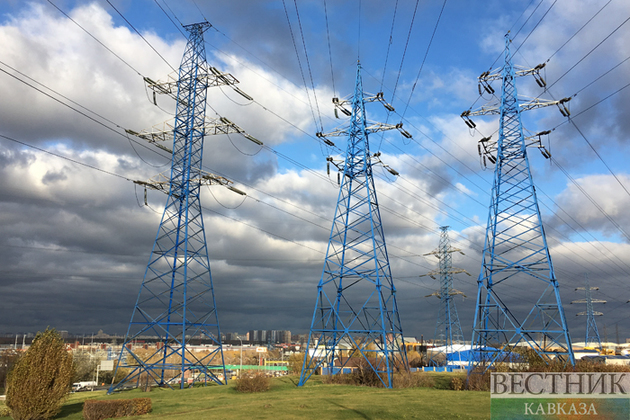New energy projects linking the Caucasus with the EU are gaining momentum thanks to the Ukraine crisis. Azerbaijan and Georgia are hoping to capitalize on their rising geopolitical significance and gain a new route to supply Europe with electricity.
Eurasianet notes that plans for an electricity cable stretching beneath the Black Sea from Georgia to southeastern Europe have been on the table for several years now. But with European energy security newly relevant amid the crisis in Ukraine, leaders from both sides of the sea are increasingly discussing energy when they hold high-level meetings.
“The new project to be implemented is related to electricity. Azerbaijan is trying to export its electricity to world markets,” Azerbaijani President Ilham Aliyev said during a visit to Georgia on October 24. “Of course, our export direction passes through Georgia.”
Three days later the project became, in the words of Hungarian Prime Minister Viktor Orban, “the most important issue” during a visit to Budapest by Georgian Prime Minister Irakli Garibashvili. “A new, far-reaching energy cooperation project is taking shape - one in which we Hungarians have a special interest,” Orban said on October 27 at a joint press conference with Garibashvili. “We want to create a huge new electricity supply system, the essence of which would be to bring energy from Azerbaijan to Hungary via Georgia and Romania. This would allow us to replace a large amount of natural gas, natural gas that today we use to generate electricity in Hungary.”
Hungary, along with Romania, began to lobby for the project in the months following the Ukraine crisis, as Europe belatedly realized its dependence on Russian gas. Orban expressed hope that new sources would bring down high energy prices in Europe and help his country fight inflation. Earlier, Hungarian Minister of Foreign Affairs and Trade Peter Szijjarto implied that some of the imported electricity would be passed on to other European countries, so the project could receive European Union support.
“Today we agreed that Hungary will join this large-scale plan because in order for the project to receive EU support, the participation of at least two member states is required, Szijjarto said on August 24 following a phone call with Azerbaijani Energy Minister Parviz Shahbazov.
Georgian Economy Minister Levan Davitashvili also spoke about EU support late in October, suggesting the project, which he claimed was Georgia’s idea, would cost several billion dollars and that an agreement between the four countries would soon follow.
The plans come as Brussels works to double its gas imports from Azerbaijan. Tbilisi is also trying to take advantage of its EU-bound transit potential along the so-called Middle Corridor, as trans-Asia shippers avoid existing routes across Russia.
But the underwater cable project is itself older than the crisis. In 2020, a World Bank study found commercially viable the idea of building a 1,000-megawatt undersea cable stretching over 1,000 kilometers between Georgia and Romania.
With Western financial support, Georgian State Electrosystem, Georgia’s electricity transmission system operator, continued research, announcing in 2021 that the cable would bring new export and import opportunities to the South Caucasus, “reducing dependency on existing expensive imports and thermal generation.”
The idea also jives with Azerbaijan’s stated goal to establish itself as a green energy hub. Baku has pledged to focus on the development of renewables and attracted international investments, particularly from Gulf states, to launch large wind and solar projects. Azerbaijan’s principal aim is to save its gas for export. Such reasoning seems to have only gained more relevance this year. “It will allow us to save natural gas and export the saved natural gas, especially considering that the demand for our gas has now increased dramatically,” Aliyev said in July.
The Black Sea submarine cable project still remains in the study phase. Full implementation is estimated to take three to four years. Azerbaijan has also proposed exporting electricity to Europe through what it calls the “Zangezur corridor,” across Armenian territory to its Nakhchivan exclave and Turkey. But Baku and Yerevan have yet, two years after a ceasefire agreement, to agree on any terms for transportation links.






